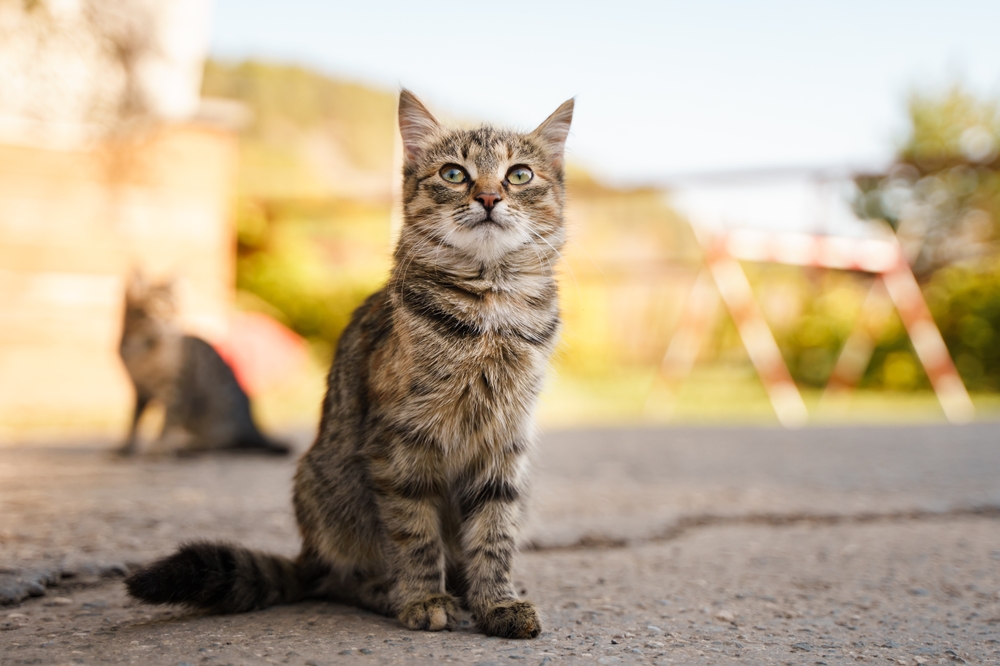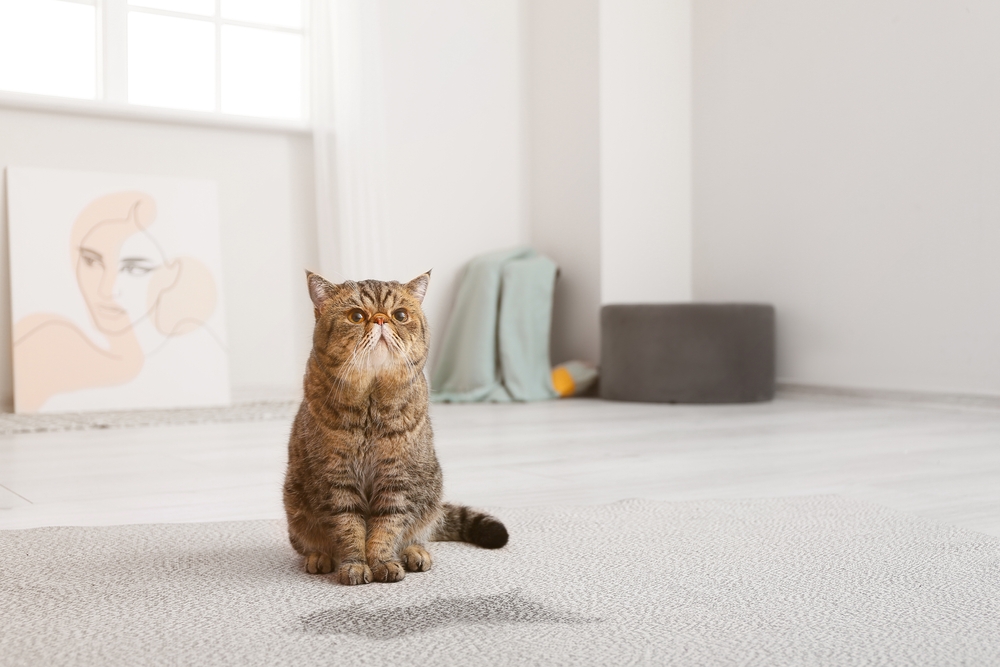Tra-la-la-la, do you remember your do-re-mi-fa-so-la-ti-do? If so, your cat might appreciate you humming them a little tune now and again. While few studies have been conducted on how cats perceive music, in general, cats seem to like music, but it will all depend on the personality and type of music you sing or play. Let’s see more about what is known so far.
Do Cats Like When You Sing to Them?
You can sing to your cats all day long to see if they like it. And most of them absolutely will! After all, this is just a silly way that you and your cat can bond. And how serious is your singing? That is a really good question.
Some people love to make up hilarious little ditties about their animals just for fun. Other people really enjoy playing an instrument or singing, which a cat can seem really drawn to. We have to remember that animals are attracted to frequencies the same way that we are.
Different tones react differently in the brain, which can produce positive or negative reactions. So yes, cats respond to sound, especially if it comforts them.
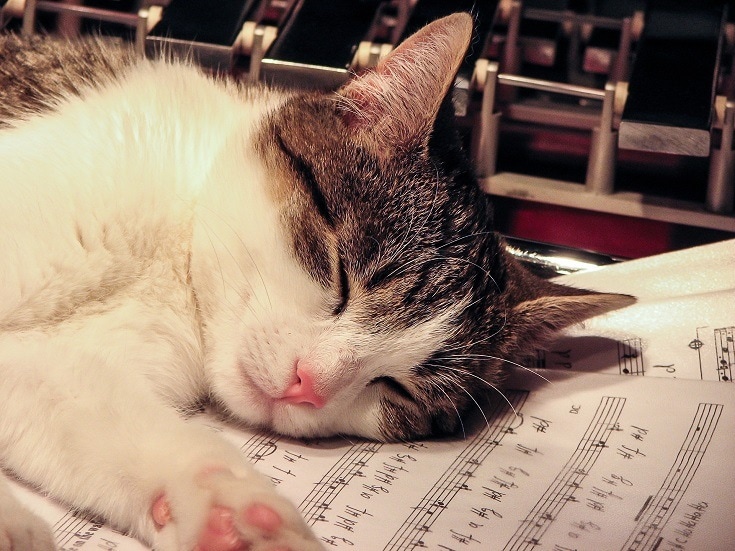
Why Might Cats Like Singing?
There are several reasons each individual cat might just love when you break out in song.
It’s the Soothing Melody
If you’re melodically playing any sort of instrument and singing, your cat might be in a trance-like state. In fact, it has been proven that certain music, such as classical, can actually lower a cat’s stress levels.
So, it’s no wonder that your singing might make them feel warm and cozy on the inside.
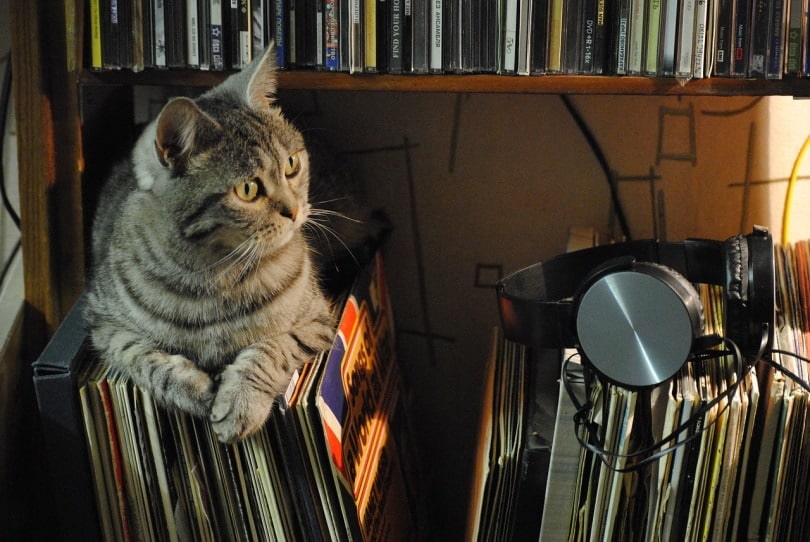
It Could Be Your Energy
Cats are all about energy—any cat owner can confirm this. They pick up on emotions, movements, and any environmental stimuli quickly. If you have a very positive, uplifting energy, they are likely to be complacent or even full of energy themselves.
So, if singing starts to get your kitty excited, you better be ready for a romping session.
They May Just Love You
They might not really have a solid reason why they like the music. Many of them won’t understand what you’re doing at all. But the reality is, they could just enjoy your voice and being close to you.
So, singing to them might be comparable to singing a lullaby to a baby.

Not All Cats Will Be a Fan
Not every cat will be accustomed to your tunes, of course. Some will look at you like you’re crazy, and others will be visibly annoyed. You know what they say—different strokes for different folks—or cats, in this case.
How to Sing to Your Cat
Most cats will enjoy you singing to them, or at least be indifferent to it. There are very few of them that will just absolutely hate it unless you’re also playing a loud instrument that scares them. Here are a few ways you can sing to your cat.
1. Make Up Silly Songs of Your Own
You don’t have to follow any particular format here. You can make up silly songs of your own! If you’re the kind of person who loves making it a little bit more fun to walk around the house, you can drum up whatever you wish!
Your cat might look at you like you’re crazy, but when don’t they? Sing anyway! Don’t let them cramp your style.
2. Replace Words in Songs With Your Cat’s Name
If you are already humming a tune, you could easily replace certain lyrics with things that relate to your cat. For example, you can add their name in place of another word in the song. You can replace lyrics with descriptions of what your cats are doing at that moment.
The possibilities are endless. Get creative.
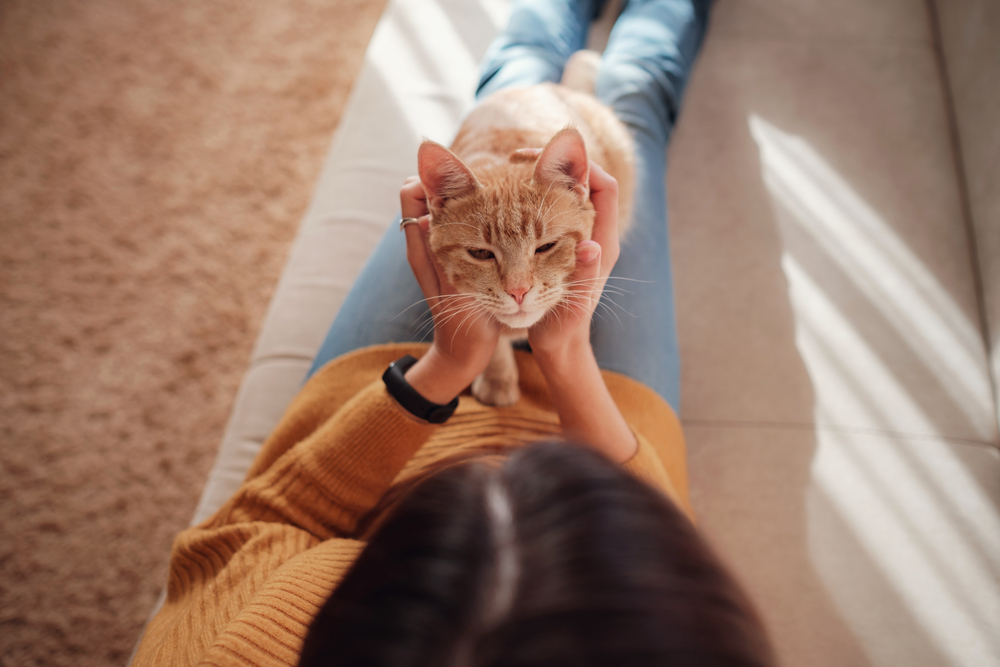
3. Practice for Your Cat’s Reaction
Try out different things to see your cat’s reaction. Try to sing in a very soothing, angelic voice, if you have one. Then, try to get excited while you’re singing to see how your cat reacts. You might find that your cat reacts differently every time or doesn’t seem to have much of a reaction at all.
Human Singing vs. Cat Purr: Are They More Similar Than You Think?
If you think about it for a minute, a cat’s purr and a human’s ability to sing can really have healing benefits. No, seriously. It’s science.
A cat’s purr is really their own special magic. It emits a frequency that can heal the body. Not only are purrs a sign of affection, but they transmit a frequency that can mend their own bodies and those they are close to.
Singing, or music in general, at certain frequencies also has magnificent impacts on the body. It is said that many different frequencies in music have different effects.
- 174 Hertz: Relieves pain and stress
- 285 Hertz: Heals tissues and organs
- 396 Herts: Alleviates baseline emotions, like fear
- 963 Hertz: Encourages unity
According to research, a cat’s purr emits a very low frequency operating between 25 and 150 Hertz. Scientifically, researchers have seen the healing effects of purring on the human body—it is moderately well-documented.
If you think about it, this is very cool. This means that your cat has superpowers. But so do we! We are capable of creating music with our voices, and with tones in frequencies to heal the mind and body as well.
So, we have more in common with our feline friends than we think.
Conclusion
You can sing to your cat—should sing to your cat—and even play music for your cat to relax. Remember, it’s proven that cats respond best to classical tunes, but they can find comfort in just about any soothing genre.
If you’re making up songs and blurting them out, your cat might wonder what the heck is wrong with you but probably loves your weird shenanigans. So, make up songs, hum, whistle, or whatever strikes your fancy, and then watch for your cat’s reaction.
Featured Image Credit: New Africa, Shutterstock






